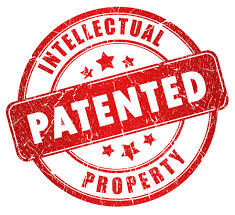An ongoing issue for printer manufacturers is the wide array and broad nature of patents in the industry. This means that when creating a 3D Printer especially one with laser-based stereolithography techniques you can be subject to the bigger players piling lawsuits on top of you. In my belief the open source nature of the 3D Printing should be spread to all areas allowing a true path for innovation with accessibility at it’s core. The risk being that if we become clogged down in lawsuits and litigation we see nothing more than stagnation in a technology with so much potential.
Would love to hear your thoughts on the issues around Patents in the industry, please post below.
The article in question I am referring to http://techcrunch.com/2014/12/01/3d-systems-v-form-labs-patent-lawsuit-dismissed/

10 Likes
Patents, as everyone knows, are to protect your idea. They are paperwork that lets you declare that you thought of something, and registered the idea, before anyone else. It becomes your property just like if you bought a plot of land and you possess the deed to it. No one can build on that land unless you authorize it.
Everyone wants protection of their ideas. I’ve been asked to sign NDA’s before printing parts for people. It makes me laugh when I’m asked because the last thing I want to do is steal someone’s idea for pretzel dough twister or whatever. My Formlabs printer is amazing, It has opened up opportunities to develop some impressive things for myself and for others. But it is a means to a end. It’s a tool. The purpose of this tool is to facilitate the fabrication of an item of value. That’s the key term in all of this, the value. I may not be interested in the pretzel twister but my customer is; enough so that they want to protect the idea of it even from the guy making it.
As far as path of innovation and accessibility to those paths, weren’t we designing, fabricating, producing and selling products long before 3D printing? There’s an entire field of study dedicated to this pursuit. Industrial Design. The true path for innovation lies in what you choose to learn and how you choose to improve upon it. Become an expert a something then come up with a better way to do it. 3D printing is just a tool to help you communicate an idea. The innovation is in the design. Accessibility is abundant; anyone can buy a 3D printer and design their idea on software that is free today. If you can’t buy a printer someone, like me, is willing to charge you to use their’s.
If someone can develop a better way to 3D print, I’m sure the first thing they’re going to do is patent that method. There is nothing wrong with that.
I’ve been involved in the introduction of new technologies for my entire career. I’ve come to several conclusions that may be interesting to discuss.
In light of the foregoing, it may surprise you to hear that I regard technological development as a runaway train. There’s always scope for the development of technologies but, in all honesty, can we really say that technology needs to develop as quickly as it does? Do we have time to consider whether any particular technology will make our world a better place? Or, come to that, a worse place. No. Not really. We develop what we can sell. What we think will cause people to part with their money, whether it’ll do them any good or whether they can afford it, both financially, or in terms of their personal wellbeing need not be a consideration. And then, if we decide we can make something that people will buy and it’ll cost them more than they can actually afford, we’ll get creative about how we part them from their cash. Cellular telephones being a case in point. Very few people could actually justify the cost of a cellphone, so the operators got creative and turned them into “service enabling devices”. So, the combined work of thousands, incorporating hundreds of materials from all over the world, was given, free-of-charge to people and they paid for the service, rather than the product itself.
For sure, competition drives technological “progress”, be that between companies or between countries. The system of patents maintains that competition and the ever increasing rate of technological development. Without patents, “progress” wouldn’t stop, but it would slow down to a possibly more human rate, which might not be such a bad thing. Oh! And just one last thing. Patents protect BIG companies from small competitors, be they small companies or lone people. Don’t delude yourself into thinking that applying for a patent will protect you from competition as, in order to defend yourself from a patent infringement, you need a whole load of money. So! Why didn’t 3D Systems win the case? Well, who says they didn’t??
1 Like